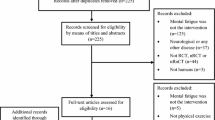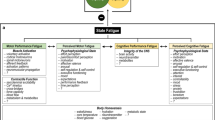Abstract
The aim of this study was to investigate the effects of various vibration parameters on the cognitive process of reasoning in humans. Previous researches have shown that whole-body vibration (WBV) from vehicles can negatively impact cognition, while certain frequencies of WBV may have positive effects. As reasoning is a crucial skill in work activities, understanding the impact of WBV on cognition is important. Forty university students participated in the study and were divided randomly into four groups, each comprising ten volunteers. They underwent six tests, including two control tests without vibration and four tests with different orders of vibration parameters based on their assigned group. The frequencies used were 5 Hz or 30 Hz, and the amplitudes were 0.8 m/s2 or 1.2 m/s2. Cognitive performance was assessed using a score system from a cognitive training app. There was a decline in performance during the initial stages, particularly between the first control test and the first application of vibrational parameters. The volunteers became proficient at using the app, indicating that their performance was influenced more by practice and learning rather than the effects of vibrations alone, as indicated by the statistical analysis. The findings suggest that the effects of vibration on cognition are more noticeable when studying individual parameters separately since studies applying it individually had shown some effect. When multiple parameters are considered, their effects tend to cancel each other out although negative effects were more pronounced during the early stages of exposure. The multivariate longitudinal analysis indicated that the primary effect observed was a "learning effect."



Similar content being viewed by others
References
Amaral TP (2015) Implementation and verification of a control system for a testing platform of whole-body vibration (in Portuguese) implementação e verificação de um sistema de controle para plataforma de testes de vibração de corpo inteiro. In: Universidade Federal de Minas Gerais, Mechanical Engineering Department, Belo Horizonte. http://www.bibliotecadigital.ufmg.br. Accessed 17 Nov 2022
Boerema AS, Heesterbee M, Boersma SA, Schoemaker R, de Vries EFJ, van Heuvelen MJG, Van der Zee EA (2018) Beneficial effects of whole-body vibration on brain functions in mice and humans. Dose-Response Int J. https://doi.org/10.1177/1559325818811756
den Heijer AE, Groen Y, Fuermaier ABM, van van Heuvelen MJG, van derZee EA, Tucha L, Tucha O (2015) Acute effects of whole-body vibration on inhibition in healthy children. PLoS ONE 10(11):e0140665. https://doi.org/10.1037/journal.pone.0140665
Donadon L, Duarte M, Galvez J (2012) Development of an active control system for a whole-body vibration platform. In: ABCM Symposium series in mechatronics, vol 5, Rio de Janeiro, pp 298–305
Duarte MLM, de Melo GC (2018) Influence of pavement type and speed on whole body vibration (WBV) levels measured on passenger vehicles. J Braz Soc Mech Sci Eng 40:150. https://doi.org/10.1007/s40430-018-1057-0
Duarte MLM, Costal GZ, Martinelli SF (2020) Effects of vehicular whole-body vibration on focus measured by a mobile app for brain training: a pilot study of the influence of gender and attention deficit hyperactivity disorder. Work 67:641–654. https://doi.org/10.3233/wor-203314
Eysenck MW, Keane MT (2020) Cognitive psychology: a student’s handbook. Routledge, New York
Firmino SG, Duarte MLM, Neves JAB, Viana PAX, de Araujo FSB (2021) Whole body vibration influence on bus fare collectors evaluated by using a brain training mobile app. Int Arch Occup Environ Health. https://doi.org/10.1007/s00420-020-01601-x
Fitzmaurice GM, Laird NM, Ware JH (2011) Applied longitudinal analysis. John Wiley & Sons, Hoboken
Friman M, Olsson LE, Stahl M, Ettema D, Gärling T (2017) Travel and residual emotional well-being. Transp Res Part F 49:159–176. https://doi.org/10.1016/j.trf.2017.06.015
Fuermaier ABM, Tucha L, Koerts J, van Heuvelen MJG, van der Zee EA, Lange KW, Tucha O (2014) Good vibrations—effects of whole-body vibration on attention in healthy individuals and individuals with ADHD. PLoS ONE. https://doi.org/10.1371/journal.pone.0090747
Griffin M (1996) Handbook of human vibration. Academic Press, London
Hair JF, Fávero LP (2019) Multilevel modeling for longitudinal data: concepts and applications. RAUSP Manag J 54(4):459–489. https://doi.org/10.1108/RAUSP-04-2019-0059
Ishimatsu K, Meland A, Hansen TAA, Kasin JL, Wagstaff AS (2016) Action slips during whole-body vibration. Appl Ergon 55:241–247. https://doi.org/10.1016/j.apergo.2015.10.014
Krawczyk DC (2010) The cognition and neuroscience of relational reasoning. Brain Res 1428:13–23
Liang CC, Chiang CF (2006) A study on biodynamic models of seated human subjects exposed to vertical vibration. Int J Ind Ergon 36:869–890
Lopes VP, Duarte MLM, Donadon LV, Araujo FSB, Vilhena DA, Guimarães RQ (2023) Influence of whole-body vibration, media, and artificial lighting on eye-movement during reading. Revis Bras Oftalmol. https://doi.org/10.37039/1982.8551.20230015
Madden DJ, Jain S, Monge ZA, Cook AD, Lee A, Huang H, Howard CM, Cohen JR (2020) Influence of structural and functional brain connectivity on age-related differences in fluid cognition. Neurobiol Aging 96:205–222. https://doi.org/10.1016/j.neurobiolaging.2020.09.010
Mansfield NJ (2005) Human Response to Vibration. Taylor & Francis e-Library, London, p 266
Neuronation, v 3.6.98 (2022) Synaptikon GmbH, Friedrichstraße 68, 10117 Berlin, Germany
Nick HC, Duarte MLM, Xavier PV (2019) The effects of whole-body vibration (WBV) evaluated using cognitive brain-training app games on tablet or cell phone for both genders. Augment Hum Res 4(5):1–9. https://doi.org/10.1007/s41133-019-0015-4
Odano I, Maeyatsu F, Asarl M, Yamaguchi S, Miura T, Taki Y (2022) Whole-Body vibration exercise and training increase regional CBF in mild cognitive impairment with enhanced cognitive function. Ann Nucl Med 36:82–94. https://doi.org/10.1007/s12149-021-01687-4
Oxford Learner’s Dictionary (2022) Definition of cognition. https://www.oxfordlearnersdictionaries.com/us/definition/english/cognition?q=cognition. Accessed 11 Nov 2022
Rakheja S, Dong RG, Patra S, Boileau PÉ, Marcotte P, Warren C (2010) Biodynamics of the human body under whole-body vibration: synthesis of the reported data. Int J Ind Ergon 40:710–732. https://doi.org/10.1016/j.ergon.2010.06.005
Raudenbush S, Bryk A, Cheong Y, Congdon R, Toit M (2019) HLM8: hierarchical linear and nonlinear modeling. Scientific Software International, Skokie
Regterschot GRH, van Heuvelen MJG, Zeinstra EB, Fuermaier ABM, Tucha L, Koerts J, Tucha O, van der Zee EA (2014) Whole body vibration improves cognition in healthy young adults. PLoS ONE 9(6):e100506
Singer JD, Willet JB (2003) Applied longitudinal data analysis: modeling change and event occurrence. Oxford University Press, Oxford
Stat Counter Global Stats (2022) Desktop vs mobile vs tablet market share worldwide. https://gs.statcounter.com/platform-market-share/desktop-mobile-tablet/worldwide/2016. Accessed 25 Oct 2022
van der Zee EA, Heesterbeek M, Tucha O, Fuermaier ABM, van Heuvelen MJG (2018) Whole body vibration, cognition, and the brain. In: Taiar
Wang Y, Correia GHA, Arem B (2019) Relationships between mobile phone usage and activity-travel behavior: a review of the literature and an example. Adv Transp Policy Plann 3:81–105. https://doi.org/10.1016/bs.atpp.2019.08.001
Ward J (2015) The student’s guide to cognitive neuroscience. Psychology Press, New York, p 549
Zamanian Z, Nikravesh A, Monazzam MR, Hassanzadeh J, Fararouei M (2014) Short-term exposure with vibration and its effect on attention. J Environ Health Sci Eng 12(1):135
Zhou J, Yang L, Liu J, Zhang C (2018) Beating long trips with a smartphone? A case study of Beijing residents. Cities 73:36–43. https://doi.org/10.1016/j.cities.2017.10.007
Acknowledgements
The authors would like to thank Synaptikon GmbH for the use of the NeuroNation App.
Funding
This research was made possible with funding from the Coordenação de Aperfeiçoamento de Pessoal de Nível Superior (CAPES)—Finance Code 001, a branch of Brazil’s Ministry of Education.
Author information
Authors and Affiliations
Contributions
Daniel Affonso Vasconcelos wrote the manuscript text and prepared the figures and tables. Jorge Alexandre Barbosa Neves performed the statistical analysis. All authors performed the laboratory tests and reviewed the manuscript.
Corresponding author
Ethics declarations
Conflict of interest
The authors declare no conflict of interest.
Additional information
Publisher's Note
Springer Nature remains neutral with regard to jurisdictional claims in published maps and institutional affiliations.
Rights and permissions
Springer Nature or its licensor (e.g. a society or other partner) holds exclusive rights to this article under a publishing agreement with the author(s) or other rightsholder(s); author self-archiving of the accepted manuscript version of this article is solely governed by the terms of such publishing agreement and applicable law.
About this article
Cite this article
Vasconcelos, D.A., Duarte, M.L.M., Donadon, L.V. et al. Influence of whole-body vibration on the cognitive ability of reasoning. Cogn Tech Work 26, 37–46 (2024). https://doi.org/10.1007/s10111-023-00740-8
Received:
Accepted:
Published:
Issue Date:
DOI: https://doi.org/10.1007/s10111-023-00740-8




